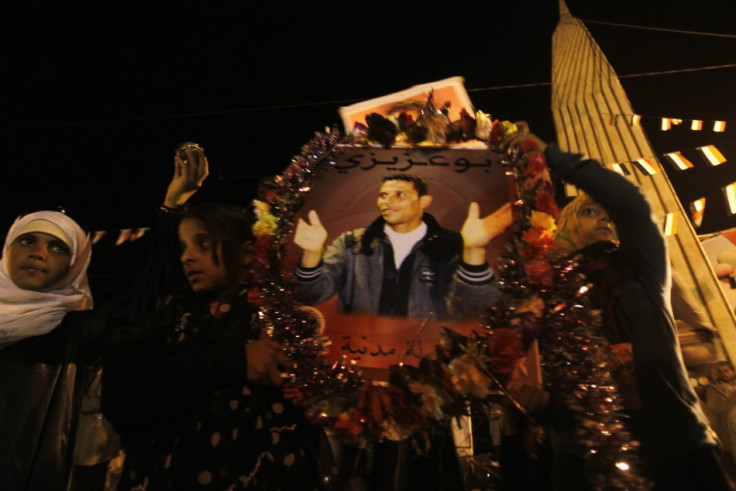The Death of Mohamed Bouazizi: The Tunisian Everyman who Shook the Arab World

On Dec. 17, 2010, a Tunisian fruit vendor set himself on fire in front of the state office of his home town of Sidi Bouzid . He died 18 days later, on January 4, 2011.
A year after his death - a death that inspired a political earthquake which led to the toppling of longstanding regimes in several North African countries - how will the world remember Mohamed Bouazizi?
"He shook the Arab world," said his mother Mannoubia on the anniversary of his self-immolation. "He changed things in a radical way."
Bouazizi's plight provided the catalyst for what would be dubbed the "Arab Spring", as people across the Arab world rose up to demonstrate against their corrupt and tyrannical rulers.
The unrest began in Tunisia, where the 26-year-old's death brought people out onto the streets, eventually forcing President Zine Al-Abidine Ben Ali to flee the country. Tunisia's "Jasmine Revolution" has since led to the country's first democratic elections in more than twenty years.
The popular movement soon spread, and went on to unseat despots in Egypt, Libya and Yemen, while ongoing clashes between protesters and security forces in Syria look set to intensify.
"Nothing would have happened if my son had not reacted against voicelessness and a lack of respect," said Bouazizi's mother, recognising the pivotal role her son's death has had on events in the region.
Vigils and memorial services were held in Sidi Bouzid in December in what was billed as "the first international festival of the freedom and dignity revolution."
On Dec. 28, 2011, The Times names Mohamed Bouazizi as person of the year.
"Bouazizi was no revolutionary," said the paper's front page, "yet his lonely protest served as the catalyst for a wave of revolts that have transformed the Middle East."
But despite the revolutionary changes that have swept the Arab world in the year since Bouazizi's death, many changes are yet to come.
In Egypt, democratic elections will hopefully pave the way for a transition to power and the relinquishing of leadership by the ruling Supreme Council of the Armed Forces (SCAF).
In Syria, the death toll continues to mount as protesters and security forces battle for control of the streets.
Even in Tunisia, which has seen the most peaceful transition from effective dictatorship to democratically elected government, much is still left unfinished.
"I hope the people who are going to govern will be able to keep [my son's] message in mind and give consideration to all Tunisians, including the poor," said Bouazizi's mother.
Others question how much change the so-called revolution has actually brought Tunisia's citizens.
"I am still here, so things have not got better for me," said 49-year-old Zina Hamdi. "It's all ideas and no action. Nothing has changed."
But whatever the future may be for Tunisia, there can be no doubt that Mohamed Bouazizi will have a place in the country's history.
"I'm proud to be from here, and proud that Sidi Bouzid is a symbol of the revolution," said Bouazizi's friend Hachem Laife. If Mohammed knew what he was starting, he would have done it sooner."
© Copyright IBTimes 2025. All rights reserved.





















